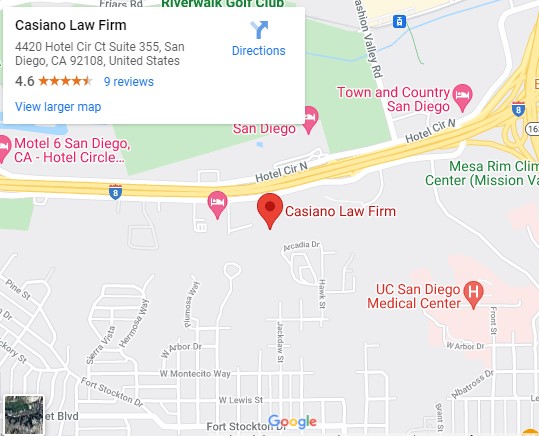Frequently Asked Questions on Estate Planning & Elder Law
Why should I choose an estate planning attorney?
By hiring the right estate planning attorney you can save a lot of money and potential chaos and hard feelings between those closest to you. If you will take the measure to professionally preplan how you want your assets managed when you are incapacitated, it will allow for a smooth transition or your property and assets at your death.
What are “Powers of Attorney”?
In California, you can sign a durable power of attorney to appoint someone to handle your assets if you become incapacitated. At a minimum, a power of attorney should include the power to:
- Manage and transfer all assets
- Deal with the IRS
- Make gifts on your behalf
- Create and amend any trusts you set up
You don’t need to transfer any assets at the time you sign a power of attorney, but it’s a good idea to keep the person you’ve chosen informed about your ongoing financial matters.
You can also appoint a Durable Power of Attorney for Health Care to make health care decisions for you when you’re unable to do so yourself. This person can provide informed consent for treatment, or even refuse treatment for you.
What happens if I die without a will?
If you die without a will (known as dying ‘intestate’) in California, your assets will be divided amongst your immediate family. If you’re married, your spouse will inherit your share of the community property (almost everything you’ve accumulated as a couple since your marriage).
If you have community property and separate property (such as property inherited from your family members that has been kept separate from community property assets), your spouse and any children or grandchildren would share your property. If you aren’t married, your property would be divided between your children or grandchildren. If you have no spouse, children or grandchildren, your property would go to your parents, siblings, nieces, nephews or other close relatives.
Are there alternatives to a will?
Wills eventually become public after your death, with the details of what you owned and how much it was worth available to anyone curious enough to read the court file. So many people look for more private ways to transfer their assets.
In California, alternatives to making a will include:
- Life insurance policies or trusts
- Gifting cash or other assets before your death
- Transfer On Death (“TOD”) or “Payable On Death” (“POD”) bank accounts
- Holding assets by joint tenancy with right of survivorship (“JTROS”), with the assets transferring automatically to the other joint tenant at the time of death
- Holding assets through a tenancy in common, with each tenant having a divided interest in the property which can be independently sold
- Retirement plans and Individual Retirement Accounts (“IRAs”)
- “Revocable living trusts” (sometimes called “grantor trusts”), giving all your assets to a trustee for management before your death
What does making a will consist of?
A valid will in California can be as simple as a basic statement of your wishes when you die, signed by you. It’s a good idea to get it witnessed by two people not named as beneficiaries in your will. It doesn’t need to be filed anywhere before your death, but it’s a good idea to put the original somewhere where it can easily be found by the person who will be processing your estate, called the “executor.”
A California lawyer who does a lot of estate planning can explain the consequences of some of the most basic choices you must make, such as whether property you want to leave to your minor children should be put into a trust at your death. It makes sense to consult with a California estate planning & litigation lawyer and have him or her draft your will, so that you don’t make costly mistakes or accidentally not accomplish what you intended.
Can I set up a trust so my children will be provided for if I die?
There are many kinds of trusts, but the most common is one you would set up for your minor children or incapacitated adult relatives for their care after you are gone and until they are old enough or well enough to take care of themselves. A parent can name a trustee to be in control of the finances and decide whether to sell or keep property, and manage assets such as real estate. The trustee, usually a family member or trusted friend, can be paid an hourly rate or a set monthly amount for their services out of the trust assets.
You will probably also want to name a guardian for your children, someone who would have physical custody of and take care of your children on a daily basis should you or your spouse be unable to do so.
What is Probate
“Probate” is a court supervised process whereby a decedent’s assets are inventoried and valued, creditor’s claims are validated and paid, taxes are paid, disputes are resolved, determinations are made as to which persons and or entities are entitled to receive a portion of the estate and distributions are made to those persons after accounting for all of the above actions.
The law for Probate matters is found in in the California Probate Code:
- Filing and validating a will in court
- Paying all the debts and taxes of the deceased person
- Dividing up the assets according to the will or California law
If you have no debts and no “titled property” such as real estate or vehicles to pass along to heirs, there may be no need for probate.
The fees lawyer’s charge for handling a probate is based on the gross value of the decedent’s estate. They make sure everything gets processed according to the law. In California, some lawyers are certified by the State of California Bar Association as “certified specialists” in estate planning, trust and probate law.

